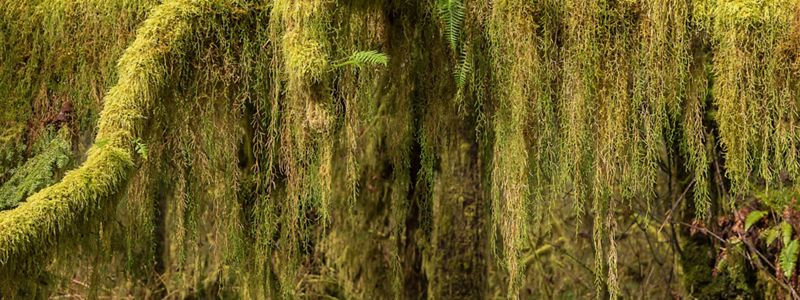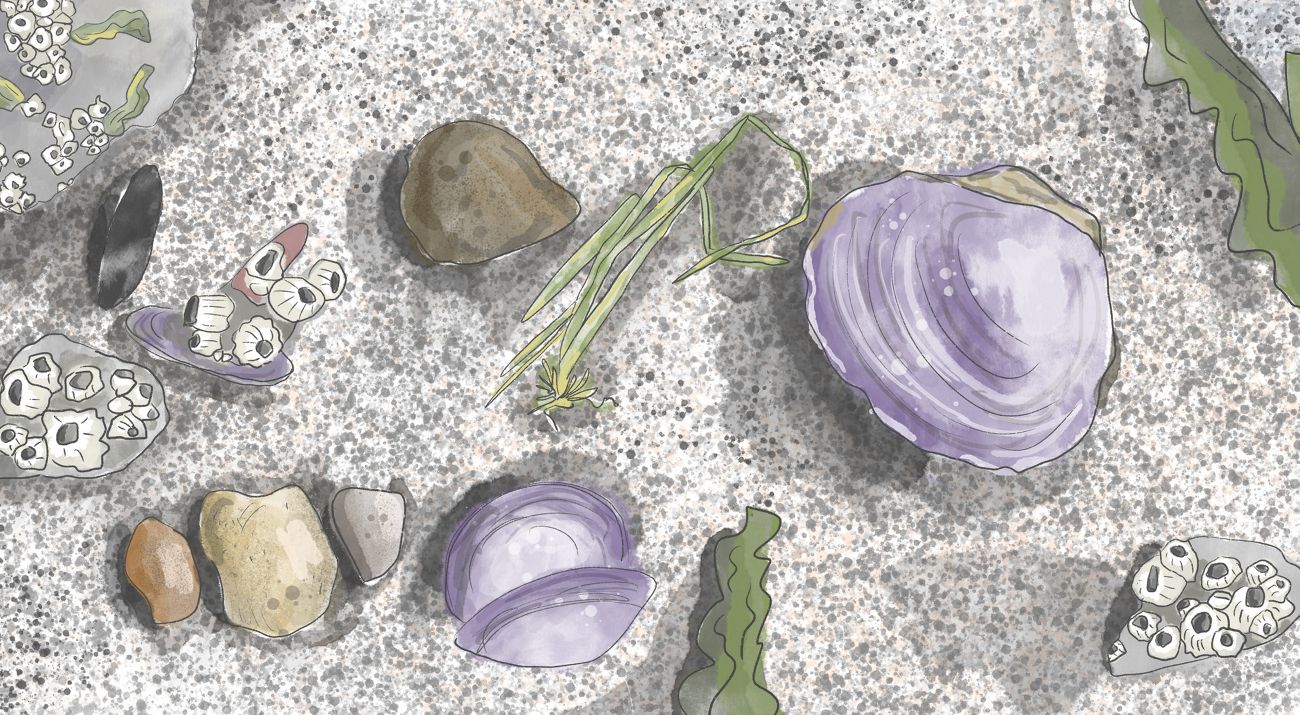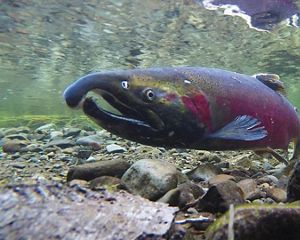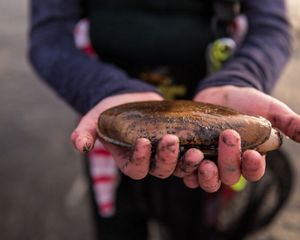Exploring Nature: Sandy Beaches
Illustrations by Erica Sloniker, TNC Marketing and Visual Communications Specialist
Welcome to Exploring Nature, an illustrated blog series that (re)discovers the natural world through art, science and observation.
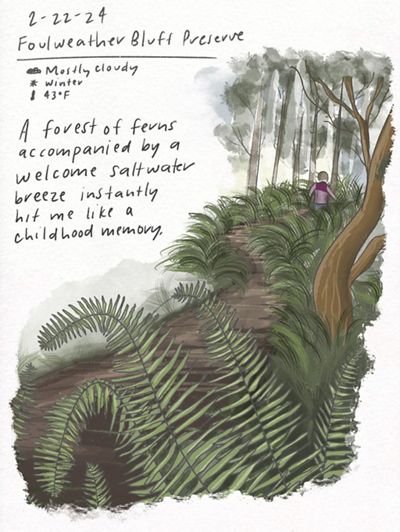
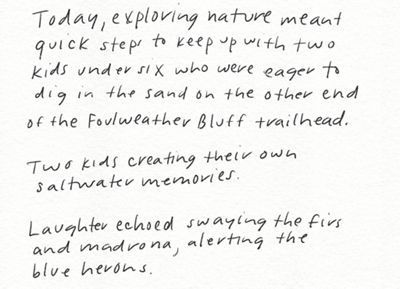
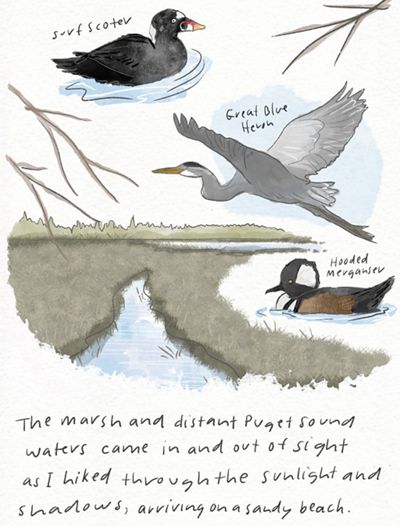
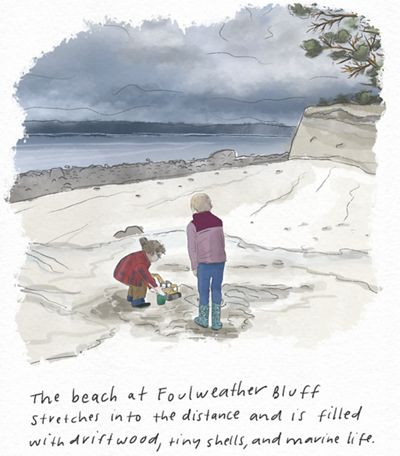
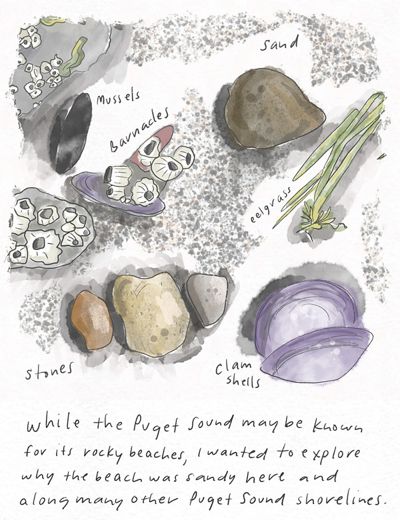
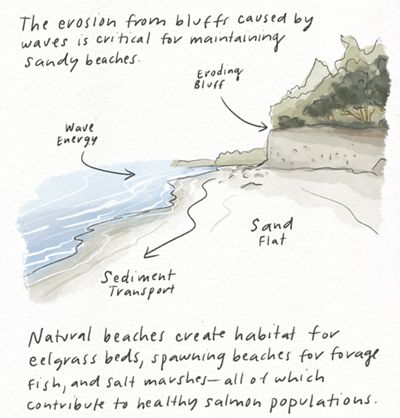
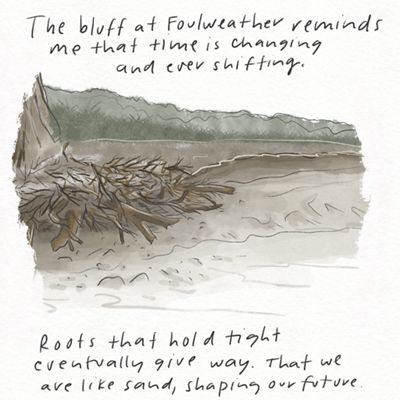
Transcript
Sandy Beaches at Foulweather Bluff Preserve
Thursday 2-22-24
A forest of ferns accompanied by a welcome saltwater breeze instantly hit me like a childhood memory.
Today, exploring nature meant quick steps to keep up with two kids under six who were eager to dig in the sand on the other end of the Foulweather Bluff trailhead. Two kids creating their own saltwater memories. Laughter echoed swaying the firs and madrona, alerting the blue herons.
The marsh and distant Puget Sound waters came in and out of sight as I hiked through the sunlight and shadows, arriving on a sandy beach.
The beach at Foulweather Bluff Preserve stretches into the distance and is filled with driftwood, tiny shells, and marine life.
While the Puget Sound may be known for its rocky beaches, I wanted to explore why the beach was sandy here and along many other Puget Sound shorelines.
The erosion from bluffs caused by waves is critical for maintaining sandy beaches creating critical habitat for eelgrass beds, spawning beaches for forage fish, and salt marshes—all of which contribute to healthy salmon populations.
The bluff at Foulweather reminds me that time is changing and ever shifting. Roots that hold tight eventually give way. That we are like sand, shaping our future.
We Can’t Save Nature Without You
Sign up to receive monthly conservation news and updates from Washington. Get a preview of Washington's Nature News email.
